Our focus on environmental sustainability has inspired us to continuously work to maximise the protection, performance and efficacy of our portfolio while minimising the impact it has on the environment. This motivates us to constantly examine the materials we use, as well as where we source them, to support the development of eco-friendly, sustainable products while adhering to our strict standards for quality and performance.
Introducing Elastoplast’s new GREEN & PROTECT range
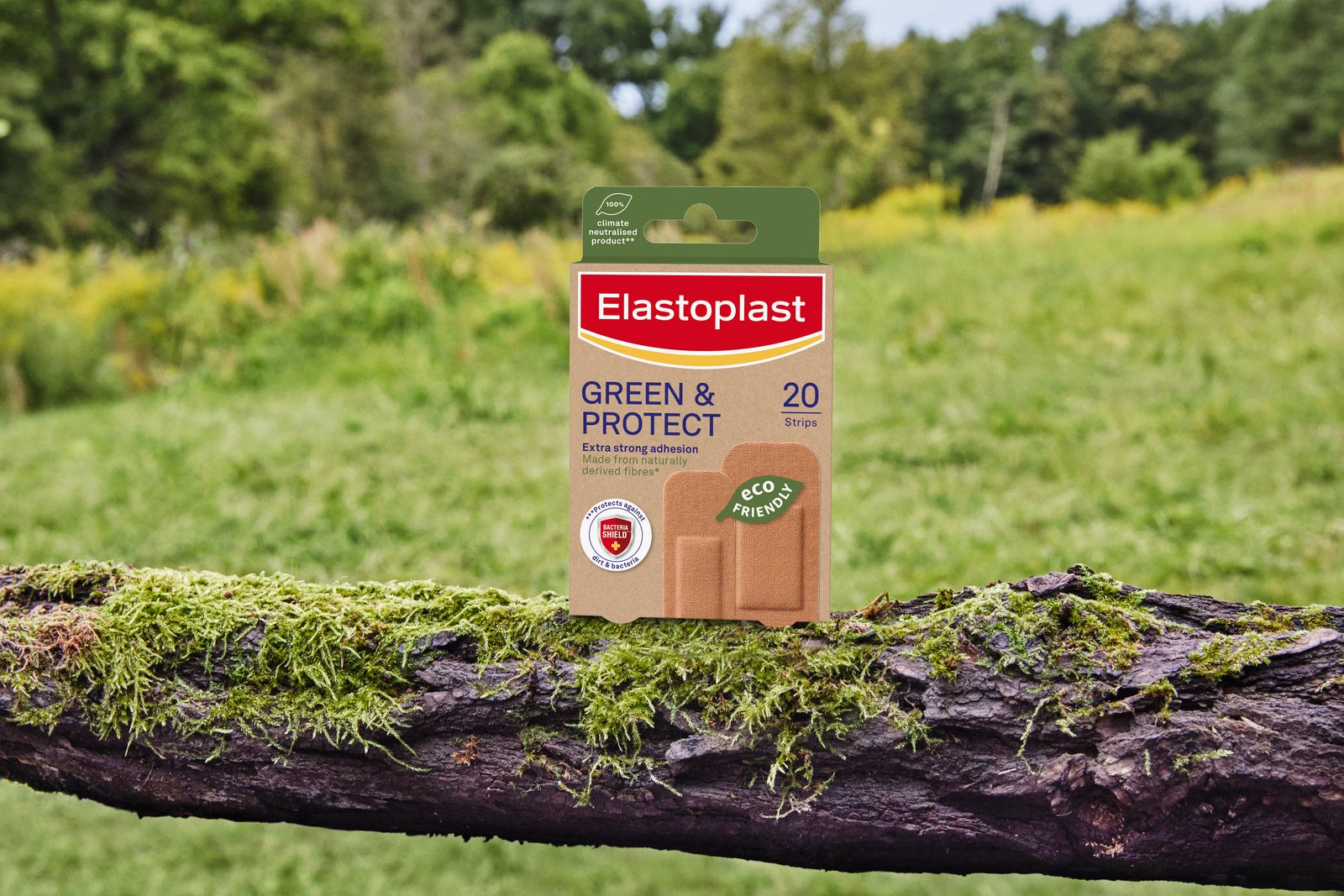
The GREEN & PROTECT range is our first range of more sustainable plasters that uses naturally derived and biodegradable fibres*. They provide the safe and reliable wound protection that you’ve come to expect from Elastoplast, so you don’t have to compromise between performance and sustainability.
GREEN & PROTECT sustainable plasters combine the flexibility of a fabric plaster with water-resistant protection. The durable, robust material is breathable and hypoallergenic, making the plasters both skin and eco-friendly products.
Our GREEN & PROTECT range features extra strong adhesion and offers the same protection as our other lines of plasters, blocking 99% of bacteria**. In addition, the GREEN & PROTECT range is 100% climate neutralised, meaning that remaining CO₂e emissions along the value chain are balanced through certified climate projects.
*wound pack and backing
**Elastoplast plasters protect against dirt and bacteria.
Sustainable materials
We have maximised the sustainability of all components of the GREEN & PROTECT range wherever possible. Discover how we’ve improved each and every part of our GREEN & PROTECT range to offer both reliable wound protection and sustainable products.
Wound pad
The GREEN & PROTECT wound pad is bio-based and fully biodegradable. We achieved this by using lyocell and polylactic acid (PLA) fibres. Lyocell is a bio-based, biodegradable fibre based on cellulose, which we source from wood grown in sustainably managed forests. PLA (polylactic acid) is made from corn, a renewable resource, and is biodegradable in industrial composting processes.
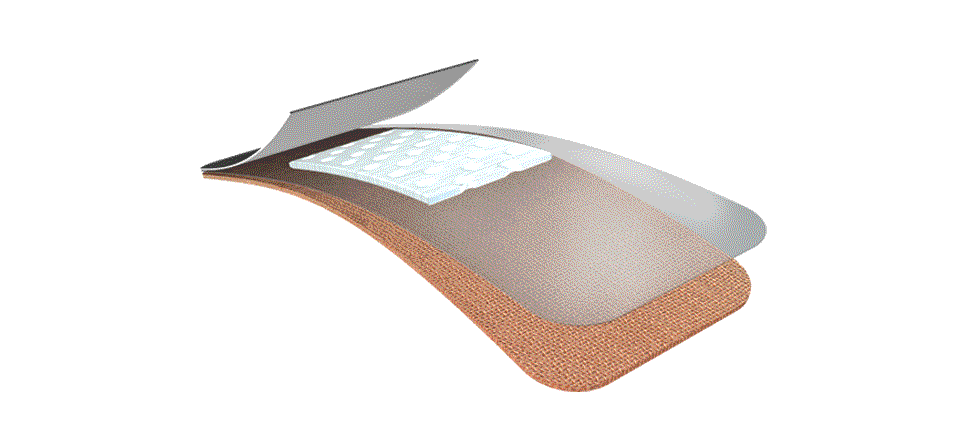
Release liner
A plaster’s release liner ensures that it maintains its sticking power while being easy to open. Our GREEN & PROTECT release liner is made from FSC®-certified¹ paper coated with biomass-balanced silicone.
Backing
The backing component of our GREEN & PROTECT plasters is made from viscose fibres. Viscose is a bio-based fibre made from wood. To minimise the environmental impact of our eco-friendly products further, we source this viscose only from wood from sustainably managed forests. To offer better protection, our viscose backings repel water while remaining fully biodegradable in fresh water.
Adhesive
Our latex-free synthetic rubber adhesive is designed to deliver optimal performance while being gentle on the skin.²
Packaging
We’ve also ensured that the packaging of our GREEN & PROTECT range is as sustainable as possible. To ensure the highest performance and safety, the strips of our sustainable plasters come enclosed in a paper-based sealing pouch to prevent dirt from coming into contact with the plaster, wound pad, or adhesive layer. As with our backing component, the paper used here is FSC®-certified¹. The folding box of our sustainable products is composed of 93% recycled carton and is printed using inks free of mineral oil.
100% climate-neutralised product
All of this adds up to a more sustainable, climate-neutralised plaster. Though 100% of the electricity and most of the raw materials used in the production of the GREEN & PROTECT range are from renewable sources, there will always be remaining emissions. Elastoplast goes the extra mile by balancing these emissions by supporting certified climate projects.
Note on composting
While Elastoplast has taken significant measures to maximise the proportions of naturally derived materials and biodegradable fibres, our product is not compostable. A used plaster has been in contact with a wound and therefore carries bodily fluids such as blood. This means a plaster must be correctly disposed of in household waste and cannot be placed into organic waste disposal or discarded into nature.
1 Beiersdorf FSC® licence number FSC® N003710.
2 At the moment, there is no bio-based or biodegradable adhesive available. Our team is researching continuously and hopes to be able to source a more sustainable substitute in the future.
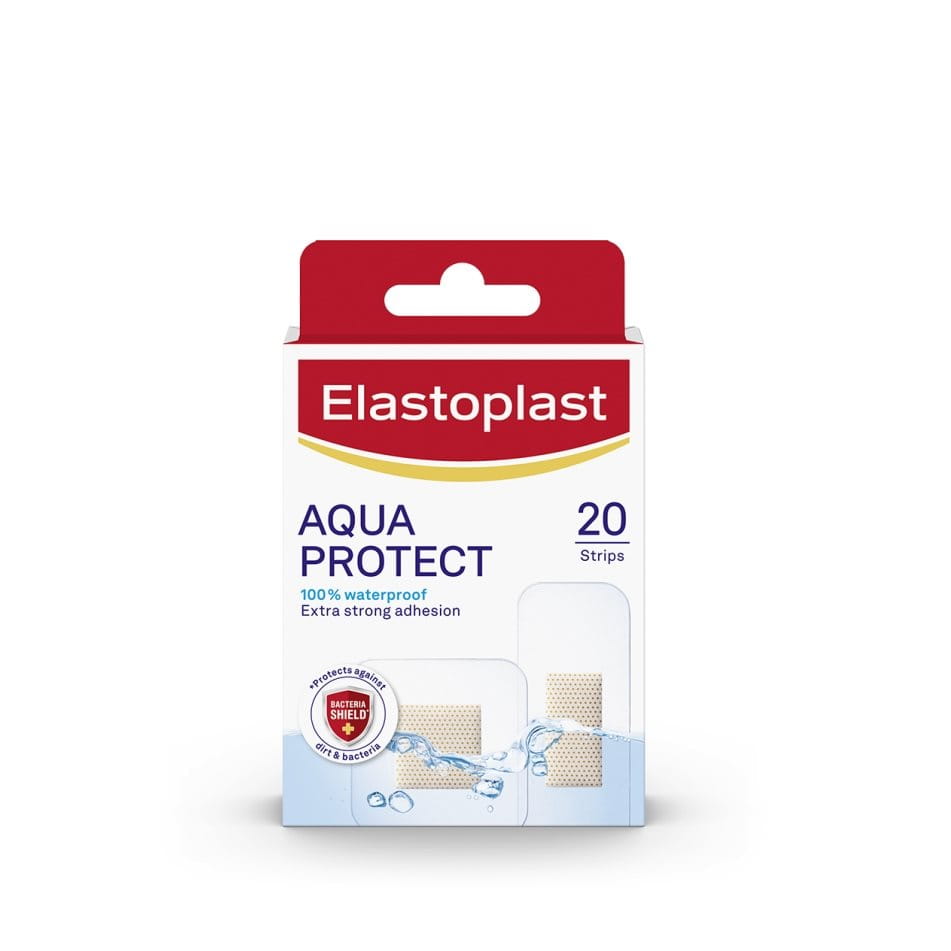
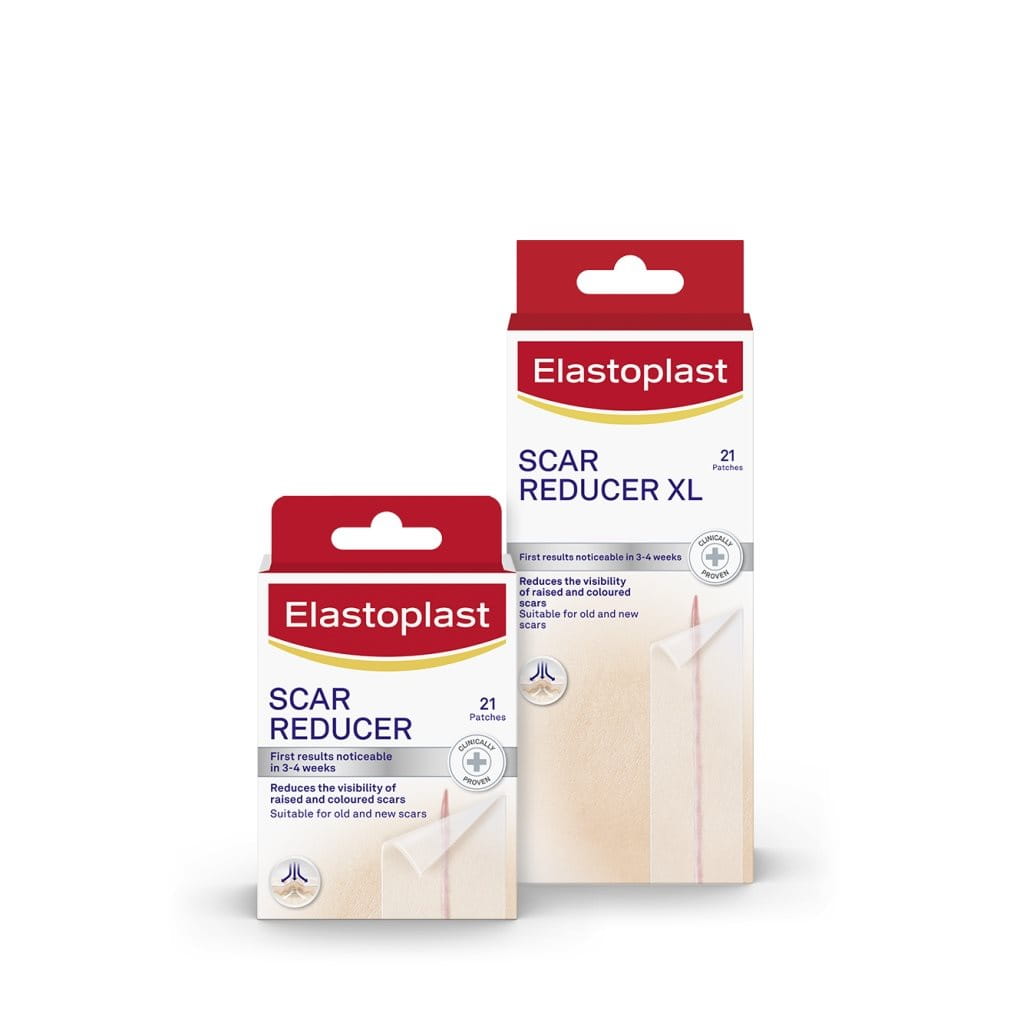
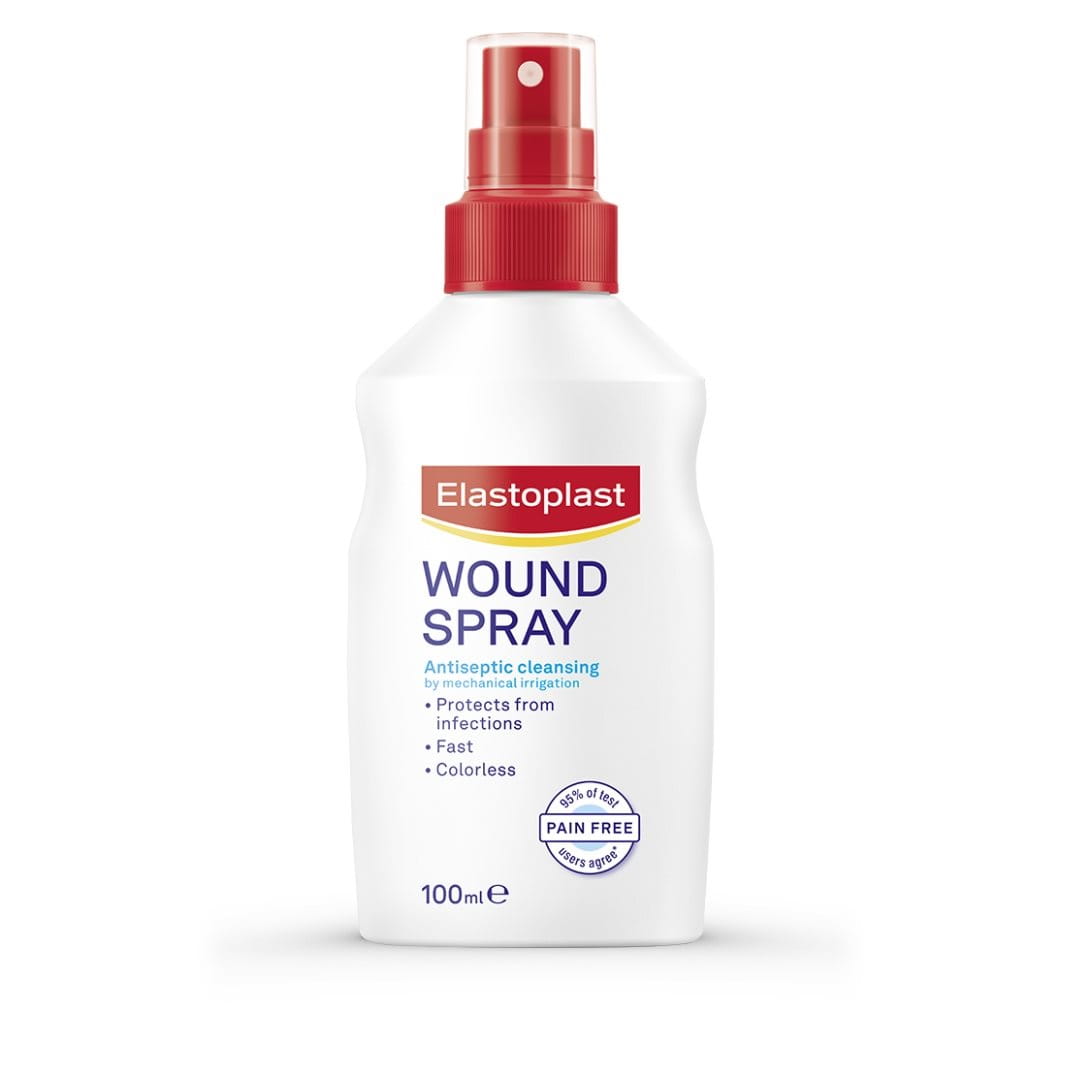
.jpg?rx=0&ry=75&rw=1500&rh=329&hash=75B2FF03DBD03F81CE829A4A9FC248E0)